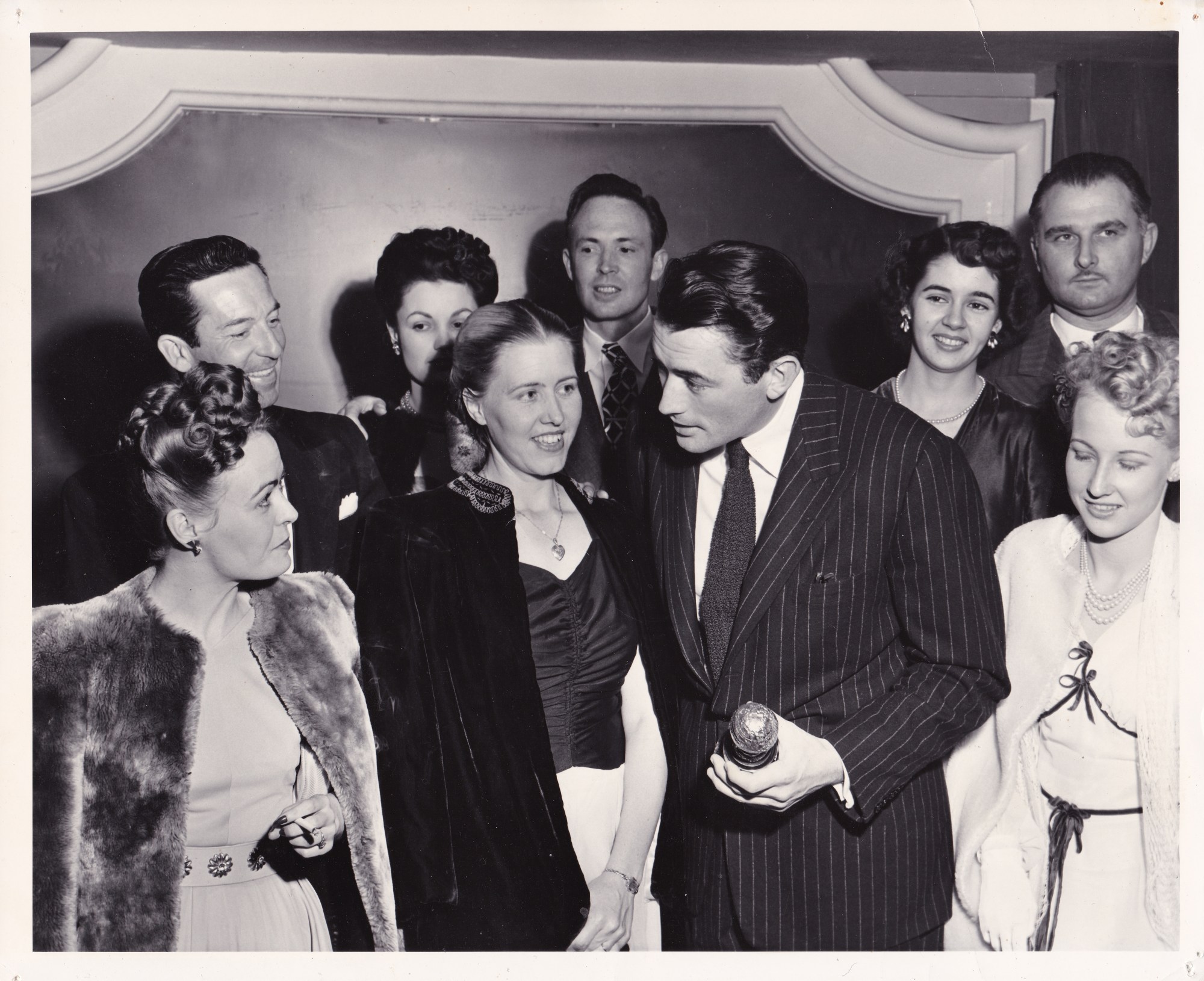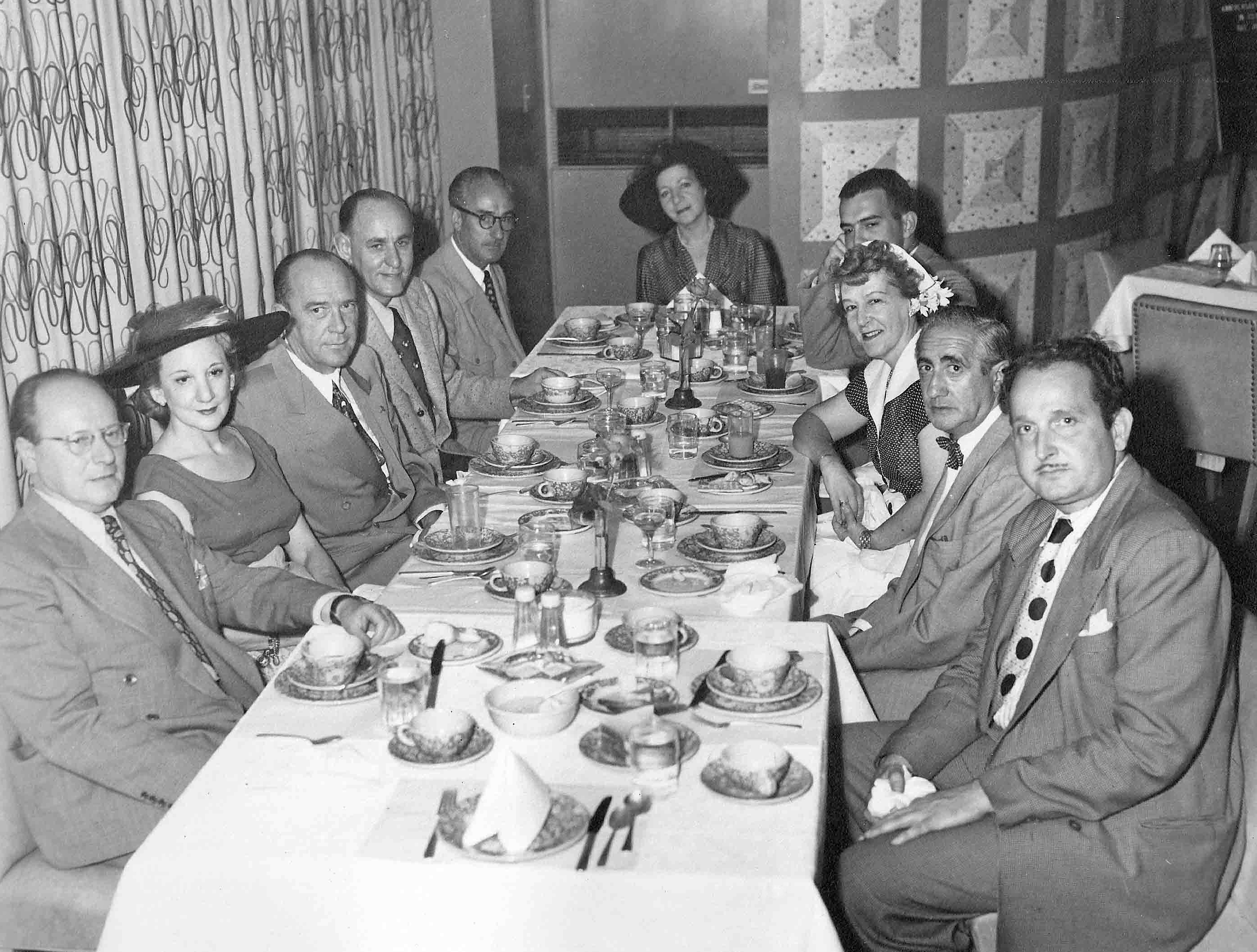
- Golden Globe Awards
Eight Decades of Golden Globes Part 1: The Beginning
1943… 1944… In a classic Hollywood film, maybe one of those juicy melodramas starring Joan Crawford, for example, a calendar would appear on the screen, its pages slowly turning from one year to the other…
Let’s stop for a moment and rewind, back to the days of World War II. After having been fiercely isolationist, just like Rick Blaine in Casablanca, the United States saw most of its movie stars play “real roles” in helping the war effort. They all reported for duty: John Ford was at Pearl Harbor with his film crew the day of the attack. The most dashing leading men of the silver screen, Clark Gable, Robert Taylor, James Stewart, Henry Fonda, are in uniform on the front lines. Bob Hope, Bing Crosby, Mickey Rooney, and Gene Kelly tell jokes, sing, and dance to entertain the troops and keep up morale. It’s the beginning of a beautiful friendship with the rest of the world and, somewhere in Los Angeles, eight foreign correspondents for assorted international publications took notice… And started brainstorming. They wondered how to develop a new link between America and the rest of the globe.
Back then, foreign filmmakers and intellectuals had come in waves to Hollywood and settled here to escape the Nazis: Fritz Lang, Billy Wilder, Jean Renoir, and many more. What was the best way, our correspondents wondered, to establish a cultural bridge between the old world and the new, to act as a sort of artistic counter-offensive in the conflict, using Hollywood films as so much ammunition in the battle for the world’s hearts and minds?
Close up on our eight journalists: Under the determined tutelage of British-raised Nora Laing, they meet, alternating between each other’s houses. Their idea grows. What if a group of foreign press representatives would reward the best in contemporary American cinema? And find a new way to access other fellow expatriates exiled in Paradise, from Charlie Chaplin to Cary Grant? Discuss love with some of the iconic couples of the times, Hepburn–Tracy, Bacall-Bogart, Laurence Olivier, and Vivien Leigh? What if those glamorous stars, mostly accessible to the domestic publications through occasions carefully calibrated by the studios, could suddenly be available to meet casually with a small group of representatives from international ones, in a more intimate setting? At their homes maybe? It could possibly help make even more readers and potential moviegoers all over the world dream…

October 1943 is the official birth of what is then called the Hollywood Foreign Correspondents Association. The first ceremony – nothing fancy – is held on the Twentieth Century Fox lot. There are only five simple categories: Best Motion Picture, Best Actor and Actress, Best Supporting Actor, and Actress. The winners get a scroll. A golden pen was briefly considered but quickly abandoned. The statuette with the golden globe and its film reel wrapped around it would appear for the first time three years later. In January 1944, the first big winner is The Song of Bernadette directed by veteran Henry King. It wins Best Film and Best Actress for Phyllis Flora Isley, better known as Jennifer Jones, the young wife of movie tycoon David O’Selznick, famed producer of Gone With The Wind. He was the complicated and visionary mogul who brought Alfred Hitchcock to Hollywood and introduced Ingrid Bergman as “the new Greta Garbo”, another Swede. She would win for Best Actress the next year, for her role in George Cukor’s Gaslight.
But we are still far from the televised party that the Golden Globes would become to be famous for, in later years, when cinema and television became combined with other innovative and, in some years, slightly off-beat categories – like the Hollywood Citizenship Award! Its only winner was the Technicolor mermaid Esther Williams in 1956…
For the second ceremony in 1945, funds are limited and so it is a simple affair, at the Beverly Hills Hotel. Joan Bennett has asked her gardener to bring flowers for the tables and the journalists of the Association in attendance hand out the prizes themselves.
Who would have guessed then that the vision of a handful of journalists could have such a lasting impact? It seems so far away, almost ancient history or it may sound so today. After all, in 1944, Judi Dench was only ten years old, Martin Scorsese, two, and Meryl StreepThis seroes will remind us how a small group that will come to be known as the HFPA will grow and witness firsthand the constant changes of Hollywood, forever linked to the pulse of its history. Just consider the eclectic array of winners at the end of this first decade alone. From An American in Paris to Sunset Boulevard, Bambi and A Place in The Sun. Gary Cooper, Gloria Swanson, John Huston, Elia Kazan, John Wayne to only name a few. And, in 1949, the very first foreign film to be rewarded was The Bicycle Thief.

